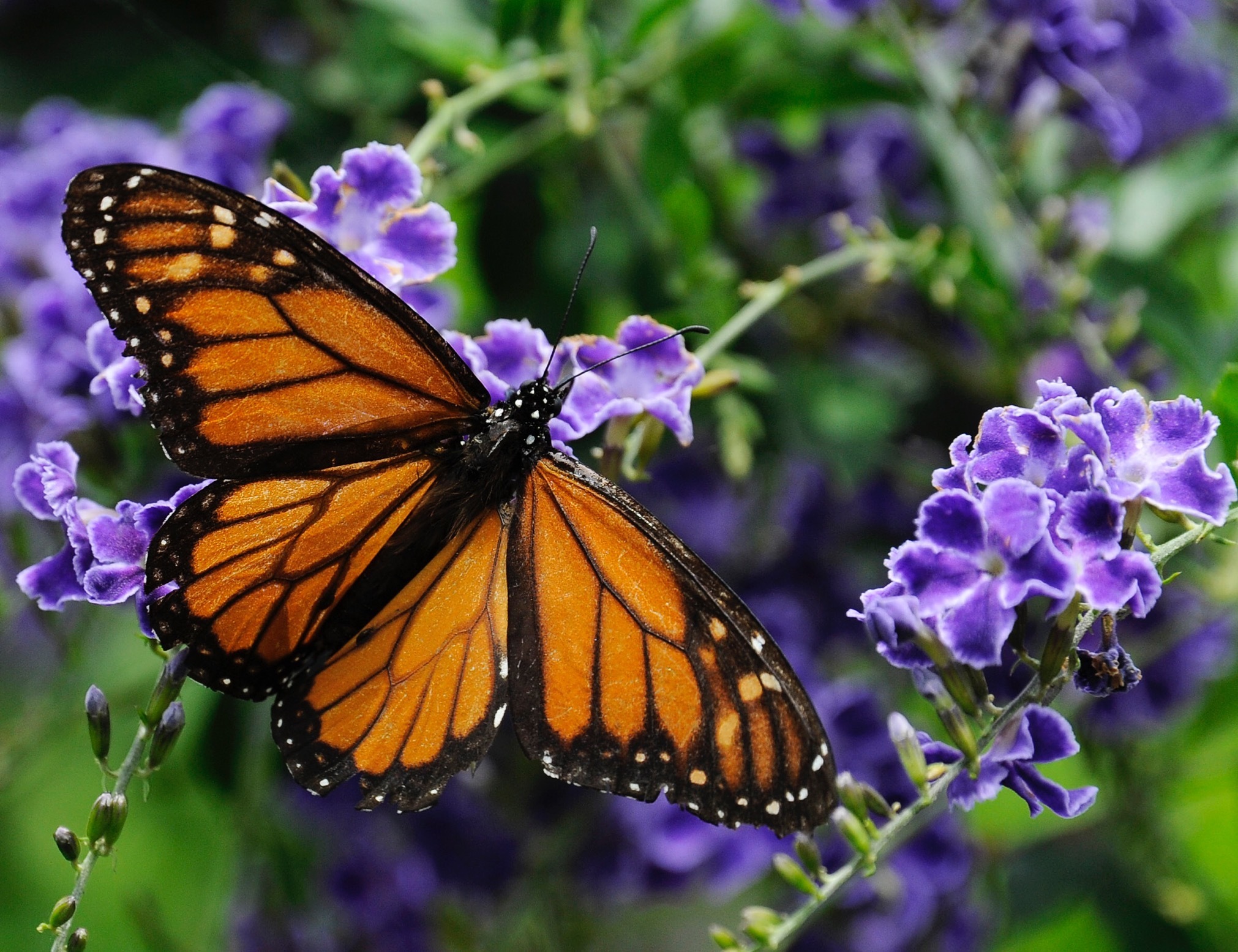The federal government says it will not protect monarch butterflies under the Endangered Species Act, even though they meet the criteria for protection.
The distinct orange and black butterflies, famous for their long migrations, have been in decline for at least 20 years, according to Lori Nordstrom, assistant regional director for ecological services in the U.S. Fish and Wildlife Service’s Midwest office.
She said they’re threatened by insecticides, as well as the loss of milkweed, which is the only plant their caterpillars eat, and of other nectar sources. They’re affected by the decline in the amount and the quality of the habitat where they spend their winters. And they face threats from climate change.
The service estimates the monarchs in the Eastern population, which migrate through Georgia in the fall and spring, fell from about 384 million butterflies in 1996 to less than 60 million in 2019.
The smaller Western population is in worse shape, going from about 1.2 million butterflies in 1997 to fewer than 30,000 as of last year. A recent estimate of this year’s population turned up around 2,000 monarchs.








